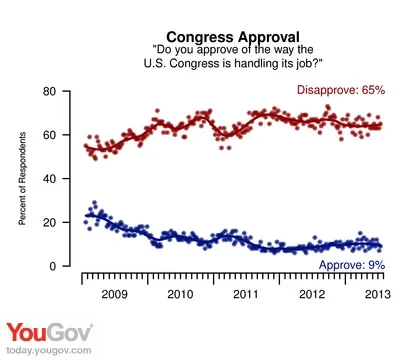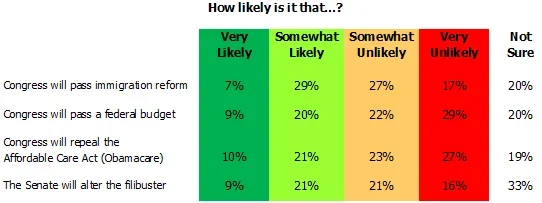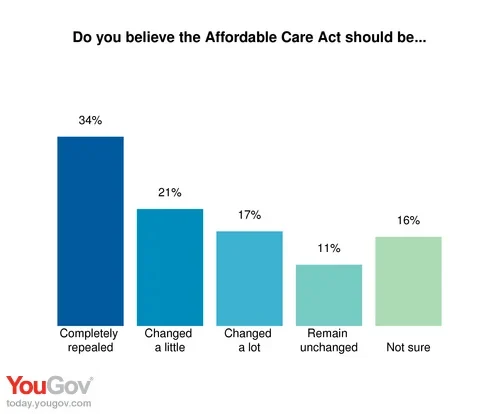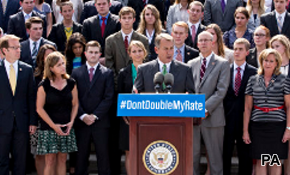(Week of 7/13/2013) Approval ratings for the Congress have been in the high single-digits for most of the last few years. In this week’s Economist/YouGov Poll not only do just 9% approve of the way Congress is handling its job, but many do not expect it to do much on some of the critical issues before it this session.

Just 36% think Congress is at all likely to pass immigration reform, one of the key issues on the agenda this session that leaders of both parties have said is important to accomplish. Less than one in ten think the prospect is very likely. Even fewer expect Congress will pass a budget.
Less than a third think Congress will take action to repeal the Affordable Care Act (Obamacare), something the Republican-controlled House of Representative (but not the Senate) has done dozens of times. The public is also dubious that the Senate will revamp the filibuster rules to reduce the number of votes needed to pass legislation.
Wanting something to happen does not necessarily make one more likely to think it will happen. Democrats, most of whom support aspects of immigration reform (61% favor providing a path to citizenship for illegal immigrants currently in the U.S.), are no more likely than Republicans to think immigration reform will pass. On the flip side, Republicans are more likely than Democrats to think that Obamacare will be repealed. 39% of Republicans expect that will happen, although 48% do not.

There continues to be opposition to the Affordable Care Act as it stands. More than two-thirds want to see it changed at least a little; a third would repeal it outright. Even a majority of Democrats say they would like at least some changes in the law.

As for the Senate filibuster, the public does not really have a position on it. One third would change the 60-vote requirement to a simple majority for all legislation, one third would not, and one third are not sure. Nearly half of Democrats would make the change; nearly half of Republicans would not. At the moment, what has been termed the “nuclear option” has been avoided with a compromise to confirm a number of presidential nominees.
Economist/YouGov poll archives can be found here
Photo source: Press Association









